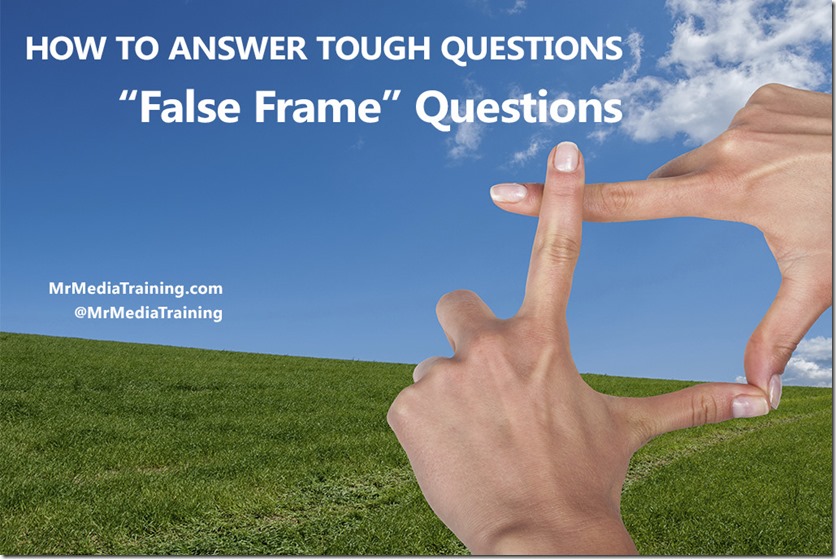How To Answer Tough Questions #4: Flip Leading Questions
One of my favorite media interviewing techniques is to take a loaded word that’s being used against you and flip it to your favor.
I like that technique because most spokespersons bog down their answers by denying the negative term and explaining why they disagree with the unfair characterization rather than spending their limited airtime making a positive case.
Below, you’ll find a few examples of flipping loaded words (the loaded words appear in bold):
EXAMPLE ONE
Question: “But isn’t it unfair to local businesses to impose yet another environmental regulation that will drive up their costs?”
Answer: “What would be unfair is asking taxpayers to pick up the tab for the small number of businesses who are affected by this regulation.”
EXAMPLE TWO
Question: “The bill you passed last year was ineffective in curbing gun violence. What makes you think more laws would help solve the problem?”
Answer: “What’s ineffective is doing nothing. We see that almost every night when we turn on the local news and see yet another fatality caused by gun violence. It’s quite effective to learn from experience and make improvements along the way—and that’s exactly what we’ve done with this new legislation.”
EXAMPLE THREE
Question: “You would you agree that the momentum is with your opponents at this point, yes?”
Answer: “Momentum is a funny thing—one decision in our favor will swing it our way, and fast. We’re confident that’s going to happen.”
In those three examples, the answer sought to redefine a thing—a regulation, a bill, and the momentum enjoyed by opponents. But the same technique can be used to redefine a personal quality.
Newt Gingrich offers a good example. When running for president in 2012, Mr. Gingrich was known for issuing bold policy proposals, such as his call to establish a moon colony by 2020. When one of his primary opponents accused him of being “grandiose” in his thinking, Mr. Gingrich seized on the term and offered a strong rebuttal.


